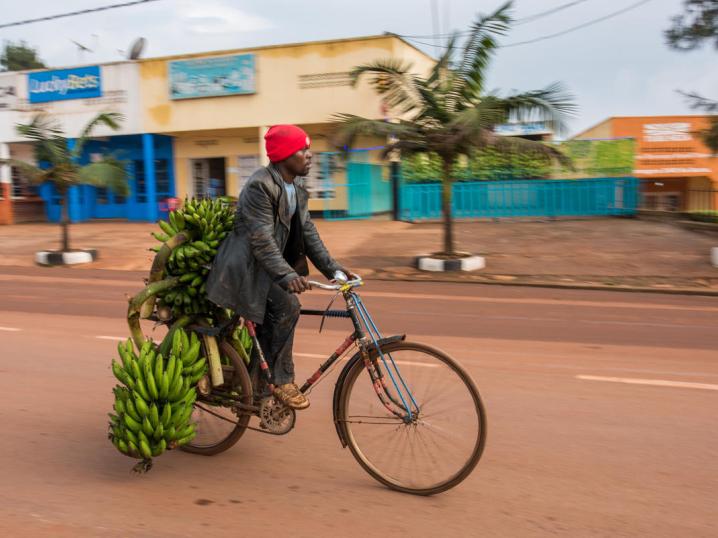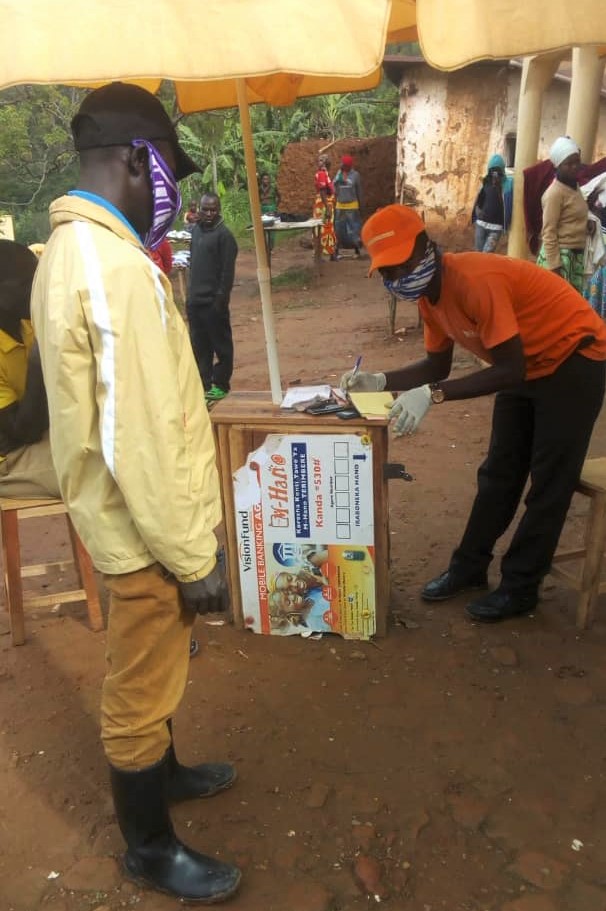Mobile Banking Impacted Rwandan Farmers in Pandemic

As the world grapples with the COVID-19 crisis, many countries have put in place stay-at-home orders, in order to prevent the spread of this deadly virus. The stay at home Ministerial order in Rwanda has, like many other countries, affected the entire population’s economic activities.
Even in pre-COVID times, 82% of VisionFund Rwanda’s 11,000 clients reside in rural areas with limited access to banks and other financial services; now, reaching our clients and complying with the stay-at-home order is even more of a challenge. However, VisionFund Rwanda, in partnership with World Vision, has been proactive in protecting clients from economic shocks since 2018 through the innovative THRIVE project.
One component of the THRIVE project is the development of Savings Groups, which are a way for people without access to formal banking services to access some financial security. Savings groups are owned, managed and operated by the members, using a simple, transparent method where groups accumulate and convert small amounts of cash into savings. The group’s savings are then lent as credit to the group’s entrepreneurs to earn additional income.
The 27 members of the Twitezimbere group began working with World Vision and in 2018, when they opened a savings group account and together deposited USD$1300 into a locked box. VisionFund was then able to loan the group an additional USD$1300, which they used to buy fertilisers, seeds, and pesticides to allow each member to expand their agricultural business activities. Currently, the group is on its second group loan of USD$1660 to expand into tomato, eggplant and rice production, providing food security to their families, their community, and also to the 71 children of the group members.
When the COVID-19 pandemic began and the lockdown order came into effect, VisionFund Rwanda checked in on the group to ensure that the members and their families were coping with changes to their circumstances. Members reported that because of the loans made to them prior to the pandemic, they have been able to practice improved agricultural techniques. The greater yields in crops mean there is now enough food to ensure that all children are receiving three meals a day, as well as allowing them to sell and give to the community. Increased incomes from selling their produce also means that most families now have medical insurance, and have been able to buy the materials needed for their children to continue studying at home.
The security of their deposited savings is also giving the group peace of mind that their money is safe and ready for emergencies like COVID-19. In 2019, VisionFund introduced a mobile banking facility called M-Hano Agent, which means the group’s savings are all managed through mobile technology, rather than riskily left in a cashbox. The M-Hano Agent facility means that the Twitzimbere group can deposit their money without needing to leave their village or speak to their VisionFund representative, and their money is then saved through not having to travel.
Throughout COVID-19, the group has paid their loan installments on time without any challenges thanks to their M-Hano Agent. The agent has also experienced an increase in profitability, as VisionFund Rwanda facilitated new products and services for the agent to sell to ensure clients’ needs are met. “Before, I was selling mobile money and airtime with a telecommunication company called MTN but now VisionFund facilitated me to introduce other services which helped to increase my profit”, says one of the agents.
In August 2020, VisionFund introduced a new system which will not only allow the group to deposit their savings, but also to withdraw, using a secure three-PIN number code that the group must authorise for withdrawals. As the pandemic continues, this will enable the group to take out its savings as required by emergency changes, allowing them to adapt and flex into new ways to preserve their livelihoods through all seasons.
